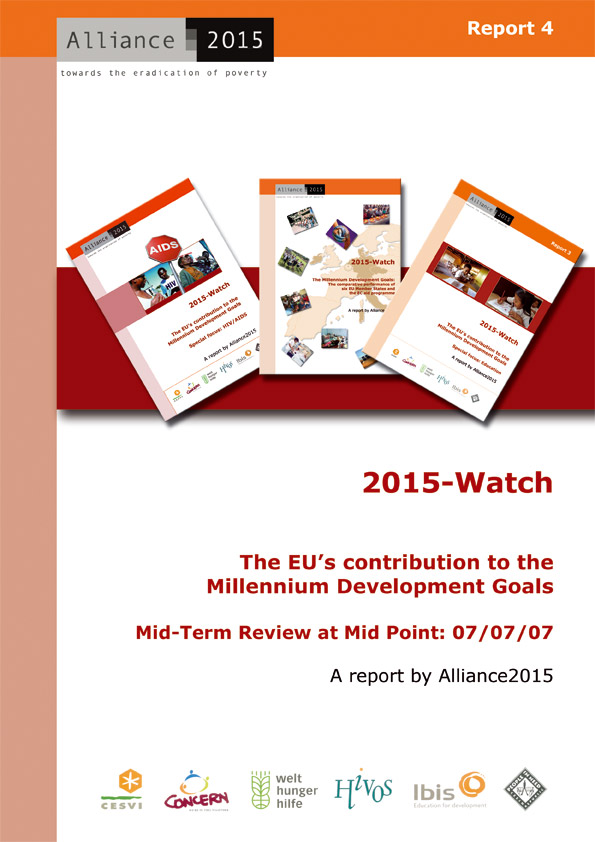EU aid failing to address poverty
 Brussels, 26 June 2007. European Union aid programmes do not contribute adequately to international efforts on poverty reduction. This is the conclusions of the latest 2015 Watch Report published to mark the mid point between the 2000 Millennium Summit and the target date for principal Millennium Development Goal to half absolute poverty All eight of the United Nations’ Millennium Development Goals (MDGs) relate to health and education. They include achieving universal access to primary school for all the world’s children, effective action against AIDS and ensuring sharp falls in infant mortality and the number of women who die during childbirth.
Brussels, 26 June 2007. European Union aid programmes do not contribute adequately to international efforts on poverty reduction. This is the conclusions of the latest 2015 Watch Report published to mark the mid point between the 2000 Millennium Summit and the target date for principal Millennium Development Goal to half absolute poverty All eight of the United Nations’ Millennium Development Goals (MDGs) relate to health and education. They include achieving universal access to primary school for all the world’s children, effective action against AIDS and ensuring sharp falls in infant mortality and the number of women who die during childbirth.
Yet Alliance 2015, a coalition of development NGOs that published the report, has found that the proportion of EU aid allocated to basic education fell from 4% in 2000 to 2.7% in 2005. It also found that out of 61 programmes devised by the EU for implementation in the African, Caribbean and Pacific (ACP) bloc, only two list health as a priority.
See report
The report also expressed alarm at new proposals by the European Commission to change what it considers as support to health and education. The Commission wants part of the aid it channels directly into the national budgets of recipient countries to be considered as support for health and education, even though it would have no control over how the money is used.
Launched in Brussels on Tuesday (26 June), the report alleges too that the EU is giving more weight to economic considerations than the needs of the poorest in drawing up its aid programmes. Under a new ‘governance facility’ recommended by the Commission, developing countries hoping for additional aid would be analysed according to a set of 23 criteria. While these relate to such issues as migration, trade liberalisation and the fight against terrorism, only one has a direct bearing on the MDGs.
Alliance 2015 comprises the Italian organisation CESVI, Concern from Ireland, Deutsche Welthungerhilfe from Germany, Ibis from Denmark, and People in Need from the Czech Republic. The majority of the organisations are also members of Eurostep.







